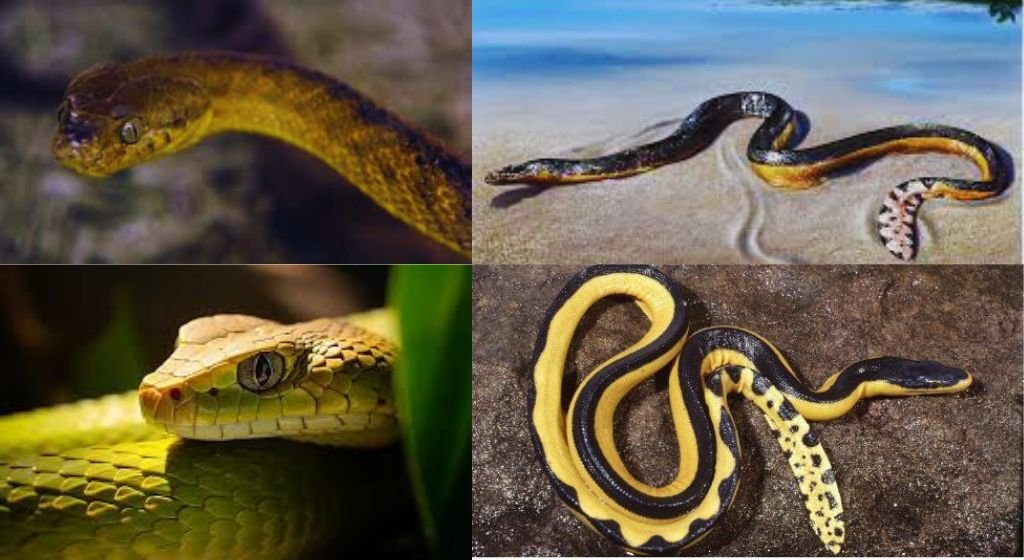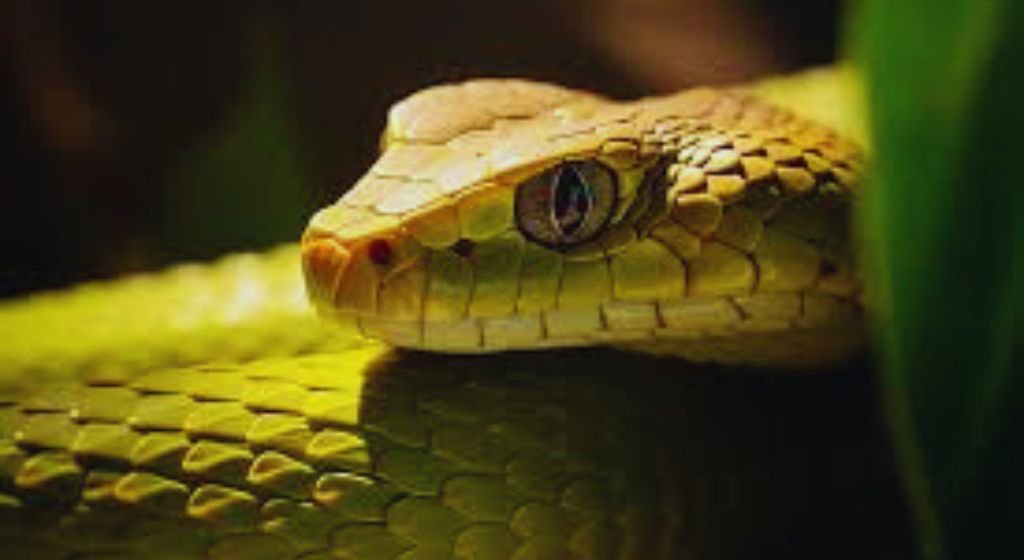Are There Snakes in Hawaii? Hawaii’s pristine islands are renowned for their breathtaking landscapes and unique biodiversity. Amidst its lush rainforests and vibrant marine life, one may wonder about the presence of snakes in such a diverse ecosystem.
Hawaii is popularly believed to be snake-free, but the truth is slightly more complex.
Key Takeaways of Snakes in Hawaii
- Hawaii is mostly free of snakes, except for some rare non-native species like the Brahminy Blind Snake.
- Invasive species such as the Brown Tree Snake, Ball Python, Boa Constrictor, Garter Snake, and Corn Snake represent serious risks to Hawaii’s fragile ecosystem and native wildlife.
- To keep these invasive snakes out, Hawaii enforces stringent importation controls at all entry points.
- This underscores the critical need to educate both residents and visitors about snake safety precautions.
Hawaii’s Snake-Free Status
Hawaii prides itself on being almost completely free of snakes. The island’s isolated location in the middle of the Pacific Ocean has naturally limited the wildlife that can reach its shores. To preserve its delicate ecosystem, stringent laws are in place against the importation and keeping of snakes.
The state enforces these regulations rigorously, recognizing that the introduction of snakes could have devastating effects on the native wildlife, which has evolved without such predators.
Related: Best 10 Things to Do in Hawaii
Does Hawaii Have Snakes?
There’s a widespread belief that Hawaii is completely free of snakes, leading to frequent inquiries such as “Are there snakes in Hawaii?” and “Does Hawaii have snakes?”
Although no snake species are originally from Hawaii, various types of snakes either reside on the islands or occasionally arrive there.
Due to the absence of natural predators, these snakes can devastate native lizard populations and threaten endangered bird species.
Consequently, any snakes discovered in Hawaii are either exterminated or relocated. The Brahminy blind snake is an exception, as its small size and diet of ants pose no significant threat.
Which Snakes Live in Hawaii?
In Hawaii, where snakes are largely prohibited due to their potential threat to the unique ecosystem, instances of snake populations are rare and usually involve non-native species. The most commonly discussed venomous snakes are the yellow-bellied sea snake and the brown tree snake, the latter being particularly feared for its potential to devastate local wildlife.
On rare occasions, non-venomous snakes like ball pythons and boa constrictors have been found, typically arriving inadvertently through human activity. Additionally, the small and harmless Brahminy blind snake is present, believed to have been accidentally introduced through soil and plant imports. These instances are exceptions to Hawaii’s stringent no-snake policy aimed at protecting its delicate ecological balance.
READ: Best Time to Visit Hawaii in 2024
Exceptions and Incidents
Despite its snake-free status, Hawaii has had its share of snake sightings. These are mostly isolated incidents involving stowaway snakes on cargo ships or planes. One of the most notable concerns has been the potential introduction of the brown tree snake, which has wreaked havoc on the biodiversity of Guam since its accidental introduction.
Hawaii has established rigorous inspection and quarantine processes at ports to prevent a similar disaster.
Impact of Snakes on Hawaii’s Ecosystem

The potential establishment of snakes in Hawaii poses a dire threat, particularly to the native bird species. Many of Hawaii’s birds are ground-nesters, easy prey for tree-climbing snakes like the brown tree snake.
The introduction of such predators could lead to rapid declines in native bird populations, similar to what has been observed in Guam. The overall ecological balance of the islands could be severely disrupted, leading to unforeseen consequences across the food chain.
Read More: Hawaiian Airlines Flight Status Updates
Legal and Conservation Measures
Hawaii’s government has implemented strict laws to combat the snake threat. Importing or owning a snake is illegal, with significant fines and potential jail time serving as deterrents. The Hawaii Department of Agriculture and conservation organizations work tirelessly to monitor and inspect incoming cargo and luggage. These efforts are critical in maintaining the islands’ snake-free environment.
The Problem with These Snakes in Hawaii
The USDA has stated that snakes and large reptiles lack natural predators in Hawaii and represent a significant danger to the island’s distinctive ecosystem by competing with native animals for food and habitat. These species often feed on birds and their eggs, exacerbating the risk to Hawaii’s endangered avian species. Additionally, large snakes could pose a threat to humans and small pets.
It is illegal to own or transport snakes to or within Hawaii. The consequences for unauthorized possession include a felony charge, fines up to $200,000, and a potential prison sentence of up to three years.
READ: Hawaii Weather
Are There Poisonous Snakes in Hawaii?
Referring to the venomous yellow-bellied sea snake, which is often incorrectly termed poisonous, it is one of just two venomous snakes found in the Hawaiian Islands. The other is the brown tree snake, which, while also venomous, is considerably less toxic than its marine counterpart.
Nevertheless, venomous snakes aren’t the only concern in Hawaii. The islands have experienced several alarms involving different types of nonvenomous snakes, such as ball pythons and boa constrictors.
Read Also: Best Things to Do in Hawaii
Public Education and Awareness
Awareness campaigns play a crucial role in keeping Hawaii snake-free. The state conducts educational programs to inform both residents and visitors about the importance of the islands’ snake-free status and the severe implications of introducing foreign species.
Public cooperation is essential, and tourists are especially urged to be vigilant about not inadvertently bringing snakes or other invasive species into the country.
Conclusion
Maintaining Hawaii’s status as a snake-free state is vital for preserving its unique and vulnerable ecosystem. While the islands currently enjoy relative freedom from snakes, constant vigilance and cooperation from all who visit and live in Hawaii are imperative to keep it that way. As Hawaii continues to protect its natural heritage, it remains a paradise not only for its human visitors but also for its native wildlife, which thrives without the threat of snake predation.
To Know More: How Many Islands in Hawaii?
Frequently Asked Questions (FAQs) About
Here are frequently asked questions about the presence of snakes in Hawaii:
Are there any native snake species in Hawaii?
No, there are no native snake species in Hawaii. All snake sightings in Hawaii involve non-native species that have been accidentally introduced or illegally brought into the islands.
What types of snakes have been found in Hawaii?
Although rare, a few types of snakes have been found in Hawaii, including the yellow-bellied sea snake, the brown tree snake, ball pythons, and boa constrictors. The non-venomous Brahminy blind snake has also been reported.
Is it legal to own a snake in Hawaii?
No, it is illegal to own or transport snakes to or within Hawaii. The state has strict laws to prevent the introduction and spread of snakes to protect its unique ecosystem.
What are the penalties for having a snake in Hawaii?
Possessing or transporting a snake in Hawaii is a felony punishable by fines of up to $200,000 and up to three years in prison.
Why are snakes considered a threat in Hawaii?
Snakes are considered a serious threat in Hawaii because they compete with native animal populations for food and habitat. They can also prey on birds and their eggs, posing a significant risk to endangered native bird species.
How does Hawaii manage snake prevention?
Hawaii employs rigorous inspection and quarantine processes at all ports of entry. These measures are designed to prevent snakes and other invasive species from entering the islands.
What should I do if I see a snake in Hawaii?
If you see a snake in Hawaii, you should immediately report it to the Hawaii Department of Agriculture or local authorities. Do not attempt to handle or capture the snake yourself. Prompt reporting helps prevent the establishment of snake populations and protects Hawaii’s biodiversity.
















